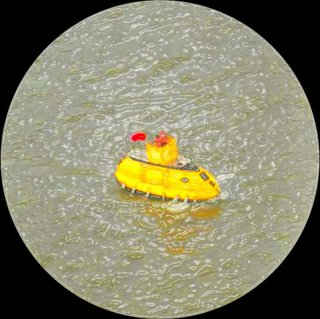Learned and not educated...

A study of university admissions staff claims that numeracy, literacy and study skills are falling amongst school leavers.
I've taught 1st year undergraduates (multi-disciplinary subject, Russell Group Uni)and the two BIG problems I had with students were that they had been 'spoon-fed' and were 'learned but not educated'.
Schools hand-hold students through the syllabus. When they get to university, 1st years expect to be told the answers. As soon as they hit a problem in computer lab - their hands are straight up in the air asking for help. By the time the demonstrator arrives, they've solved the problem by themselves. And they couldn't organise a booze-up in a brewery. For one tutorial, I selected 4 topics and told the 6 students to divide into 3 pairs, each pair arrange (by e-mail, after the tutorial) to do a different topic and prepare a presentation. I received 3 presentations on the same topic. The next time I ran the tutorial, I asked them to sort who did what at the end of the previous tutorial. This didn't help - I STILL received 3 presentations on the same topic.
The students knew abolutely zilch outside of their A-level course material. I asked them to role play the various stakeholders involved when siting a wind farm. They hadn't a clue how government worked (IIRC at least a third of the group didn't know the UK had local government). From other tutorial exercises, it was apparent they knew zero about history, economics, ethics, evolutionary biology, world affairs, philosophy, theology, popular science, other countries... You name it - if it didn't form their A-level syllabus they knew nothing about it. Most of them read the BBC website but with no background to events, they understood what was happening but not why. This may sound intellectually stuffy but current affairs affect business, schools, charities, government... the very places these students are hoping to work after graduation, as well as their future health, wealth and happiness as individuals.
[NB: I can't comment about literacy/numeracy because I didn't really notice. All my students' open book work was readable. The purpose of writing is to communicate. If the spelling and punctuation are comprehensible, they've communicated. I mostly ignore whinging about declining standards of literacy since this assumes the purpose of writing is to maintain some gold standard of verbage - writing developed to keep inventories, not to win the Booker Prize... Personal prejudice showing here, methinks]

1 Comments:
At 12:59 pm , Tristan said...
Tristan said...
I agree. The aim of education today seems to have become one of getting the highest exam results through spoonfeeding.
My father is a primary school teacher, he wants to try and inspire children to learn and to take an interest in the world and their studies but policy dictates he should teach them to pass the SATs (thankfully for him the head mistress realises that he wouldn't stick to getting exam results so he doesn't teach SAT taking years).
We seem to have regressed to a lot of fact based teaching, limited by the syllabus. This then helps feed the prejudice which a number of children have about learning not being cool (even at a selective private school I came across this, it was thought strange that I would read a book for interest and fun rather than play incessant games of cards or read 'mens lifestyle' magazines).
This tendancy has always been there, it is simply increased by this government who thinks they know best and results can only be acheived through central planning and regulation.
Post a Comment
Subscribe to Post Comments [Atom]
<< Home